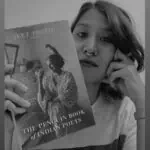For years, zines have been a vital medium of expression for LGBTQ voices, a safe space for them to express themselves and tell their stories.
Disclaimer: Bazinega is an LGBTQ-friendly business. All Baz Buddies are allies, we support equality and freedom of expression. All the zines mentioned in this blog are created by our queer artists or allies. We lift each other up and rise together! Happy Pride!
What are zines?
Zines are self-published, low-cost, DIY publications that can cover any topic, genre, or style. They are usually made by photocopying, cutting, and stapling pages together, and distributed by mail, at events, or by hand. Zines are often personal, political, and creative, reflecting the interests, opinions, and identities of their makers and readers.
How zines are a safe space for LGBTQ folks
Zines have been a safe space for LGBTQ self-expression for many reasons. Here are some of them:
- Zines allow LGBTQ folks to tell their own stories, in their own words, without the interference of editors, publishers, or gatekeepers. Zines are a way of claiming and affirming one’s identity, sharing one’s experiences, and connecting with others who can relate.
- Zines have a long history of being part of the queer culture, especially in the 1970s and 1980s, when zines were a crucial medium for spreading information, organizing, and building community among LGBTQ activists, artists, and writers. Zines were also a way of challenging the mainstream media’s representation (or lack thereof) of LGBTQ issues and perspectives.
- Zines are non-commercial and non-censored, which gives LGBTQ creators the freedom of expression they deserve. Zines are not bound by the market, the law, or the norms of society. Zines are a way of resisting and subverting the dominant culture, and creating alternative spaces and visions.

Zines are a great medium for LGBTQ artists to talk about their coming out journey without the fear of judgment. Zines allow LGBTQ artists to express their feelings, thoughts, and struggles in a honest and authentic way, and to share their personal stories with others who might be going through similar situations. Zines can also help LGBTQ artists to cope with the challenges and pressures of coming out, such as rejection, discrimination, or isolation, by providing a outlet for their emotions and a source of support and validation. Zines can also help LGBTQ artists to celebrate their identity and pride, and to embrace their diversity and uniqueness.
Want a beautiful recommendation? Read Hansika Jethnani’s award-winning zine – Coming Out [Where Am I Going?]
Zines help LGBTQ artists depict their safe spaces and talk about how they interact with the rest of the world. Zines allow LGBTQ artists to create and explore their own imaginary or real worlds, where they can express themselves freely, creatively, and safely. Zines can also show how LGBTQ artists navigate the challenges and joys of living in a heteronormative and oppressive society, and how they find or create their own families of choice, who support and accept them for who they are. Zines can also challenge the stereotypes and prejudices that LGBTQ people face, and educate and enlighten others about the diversity and complexity of LGBTQ lives. Zines can also celebrate the beauty and strength of LGBTQ communities, and the bonds and love that they share. Read Tilottama’s Fekri.

Zines also help artists find a relatable audience. Zines can connect artists with others who have an interest in their work, their style, or their topic. Zines can also reach people who might not have access to other forms of LGBTQ media or representation. Zines can create a sense of community and solidarity among LGBTQ people, and foster a culture of mutual respect and appreciation. Read Saloni Mahajan’s zine about two improbable beings going on a date here, read Vaishali Soni’s zine about embracing your sexuality and needs here, read up on Poojana Prasanna’s zines on celebrating our imperfections and facing our realities here, feel the cozy warmth of being in love with yourself and living your dream with Rohini Kejriwal’s photo-zine.
Be an Ally, support zine culture!
If you are interested in supporting LGBTQ zines, zine artists, independent zine business, here are some ways you can do so:
- Read LGBTQ zines. You can find them online, at libraries, at zine fairs, or at independent bookstores. You can also subscribe to zine distros that specialize in varied voices and feature independent artists from across the country.
- Make your own zine. You don’t need any special skills or equipment to make a zine. All you need is something to say, a story to share. You can write, draw, collage, paste pictures, or use any other medium you like. You can make a zine about your identity, your personal experiences, your opinions, your art, your favourite music, age-old recipes, or anything else you want to share.
- Gift a zine. Share LGBTQ zines. Zines make a wonderful present – a short, quick read. It’s like sharing an intimate. You can also participate in zine events, such as workshops, readings, or festivals, where you can meet other zine enthusiasts and exchange ideas, stories, and zines!
Being an ally means respecting and affirming the identities and experiences of LGBTQ people, standing up against discrimination and injustice, and advocating for positive change. Supporting the zine culture means appreciating and promoting the artistic and political expressions of LGBTQ people, and recognizing the value and impact of their work.
Zines are changing the way we tell our stories, by giving us the power, the space, and the platform to share our truths, our struggles, and our joys. Zines are not only a form of media, but also a form of resistance and liberation. Zines are for everyone, and everyone can make a difference. Happy Pride!


 Aditi Elassery
Aditi Elassery Ano Patel
Ano Patel Antara Pain
Antara Pain Ayan Farooqui
Ayan Farooqui Ayushi Singhal
Ayushi Singhal Bad Press
Bad Press Bazinega
Bazinega Hand Jobs Inc.
Hand Jobs Inc. Hansika Jethnani
Hansika Jethnani Madhurima Das
Madhurima Das Kishore Amruth
Kishore Amruth Mrunal Kulkarni
Mrunal Kulkarni Neha Shetty
Neha Shetty Nikhil Poddar
Nikhil Poddar Parvathy Subramanian
Parvathy Subramanian Pooja Dhingra
Pooja Dhingra Poojana Prasanna
Poojana Prasanna Preston Olakatu
Preston Olakatu Rohini Kejriwal
Rohini Kejriwal Ruchita Madhok
Ruchita Madhok Saloni Mahajan
Saloni Mahajan SillyBillyCircus
SillyBillyCircus Soumya John
Soumya John Soundarya Gottapu
Soundarya Gottapu Sreehari Siva
Sreehari Siva Swagatika Sarangi
Swagatika Sarangi Tilottama B
Tilottama B Vaishali Soni
Vaishali Soni